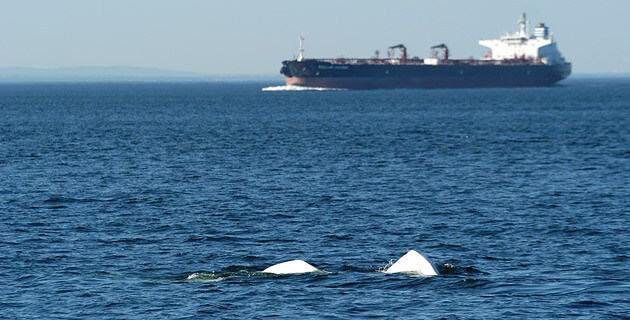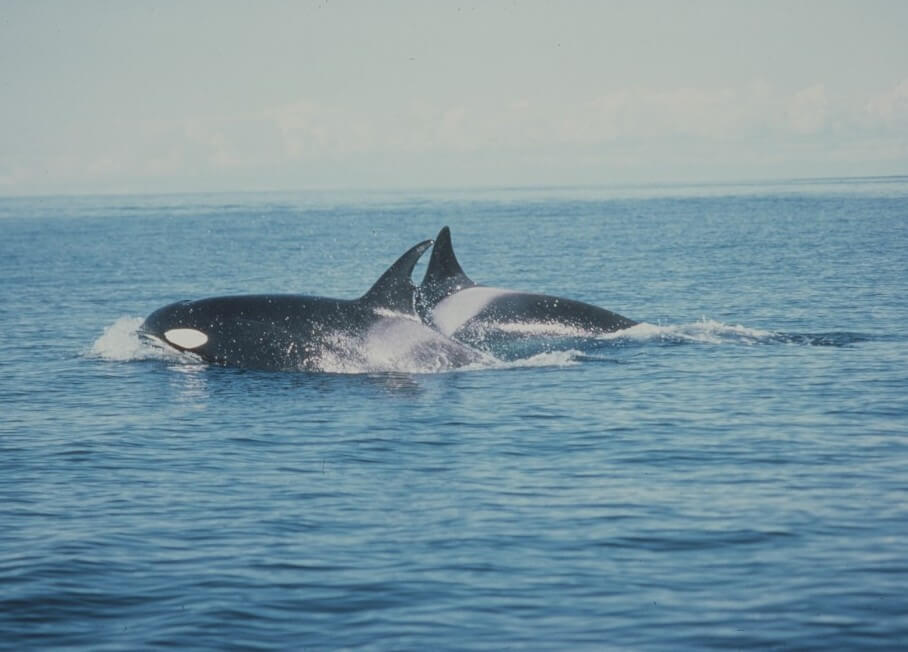In 2017, Ruth Joy and her team (ECHO) conducted a study on the correlation between speed limit reductions and noise pollution. Their results have just been published in the journal Frontiers in Marine Science.
The Salish Sea is home to a population of killer whales known as “southern residents” that numbers just 78 individuals and which is closely monitored by scientists. The area also accommodates a multitude of ships, whose engine noise threatens to accelerate the extirpation of this population by interfering with the acoustic quality of its environment. While sound plays a central role in the life of all cetaceans, it is of paramount importance for killer whales, which use it as a tool for communication, location and hunting. However, when noise emissions from boats reach too high a threshold, the southern residents seem to spend more time moving around than on these vital functions. In order to reduce the effects of shipping traffic noise, the Port of Vancouver has implemented voluntary slowdown measures in the highest-risk areas.
Ships are encouraged to slow down to 11 knots, a speed that allows vessels to reduce their noise pollution while ensuring a certain manoeuvrability. Over 53 transportation companies are answering the plea. Unlike regulatory measures, these measures have the advantage of being able to be implemented quickly. Indeed, establishing regulations requires a particularly lengthy (and costly!) process that can take several years, which is time that endangered species can ill afford.
The results are conclusive and encouraging. After just two months, killer whales are spending more time in targeted areas, where they can dedicate more time to feeding instead of moving around to avoid noise pollution.
Each region with its own measure
Could voluntary slowdown measures have a similar effect on noise exposure levels for whales in the St. Lawrence? According to Clément Chion, professor at the Université du Québec en Outaouais (UQO), their impact remains to be determined. Together with his research team, he is developing a simulation model to project the impact of navigation measurement measures on whale populations.
Even if he confirms that lower speeds can indeed have a positive effect on noise pollution reduction efforts, he considers that it is essential to include all elements of navigation in the equation in order to obtain a comprehensive portrait of the impacts. For example, a vessel moving at a lower speed will generally produce a lower instantaneous sound level, but as it stretches out its travel time, whales may be exposed to the noise it emits over longer periods. We must therefore distinguish between instantaneous exposure and cumulative exposure and avoid jumping to conclusions.
Furthermore, although it is critical to study the impacts on the resident beluga population, which are more at risk, Mr. Chion believes that it is important not to neglect certain other species, in particular mysticetes or baleen whales, which are affected differently by boat noise.
Communicating without interference
Researchers warn that shipping and boating traffic may increase in coming years, and stricter speed limits alone may not be enough to counter the effects of maritime activities. It is therefore necessary to conduct further research and combine these measures with other strategies such as “no-go” areas or alternative routes, while maintaining an open dialogue with the maritime industries, many of whose services remain essential.
Clément Chion believes that a relationship based on mutual cooperation will be more effective in protecting marine mammals, in addition to underscoring the good collaboration of the St. Lawrence maritime industries, which has already enabled a number of advances.






